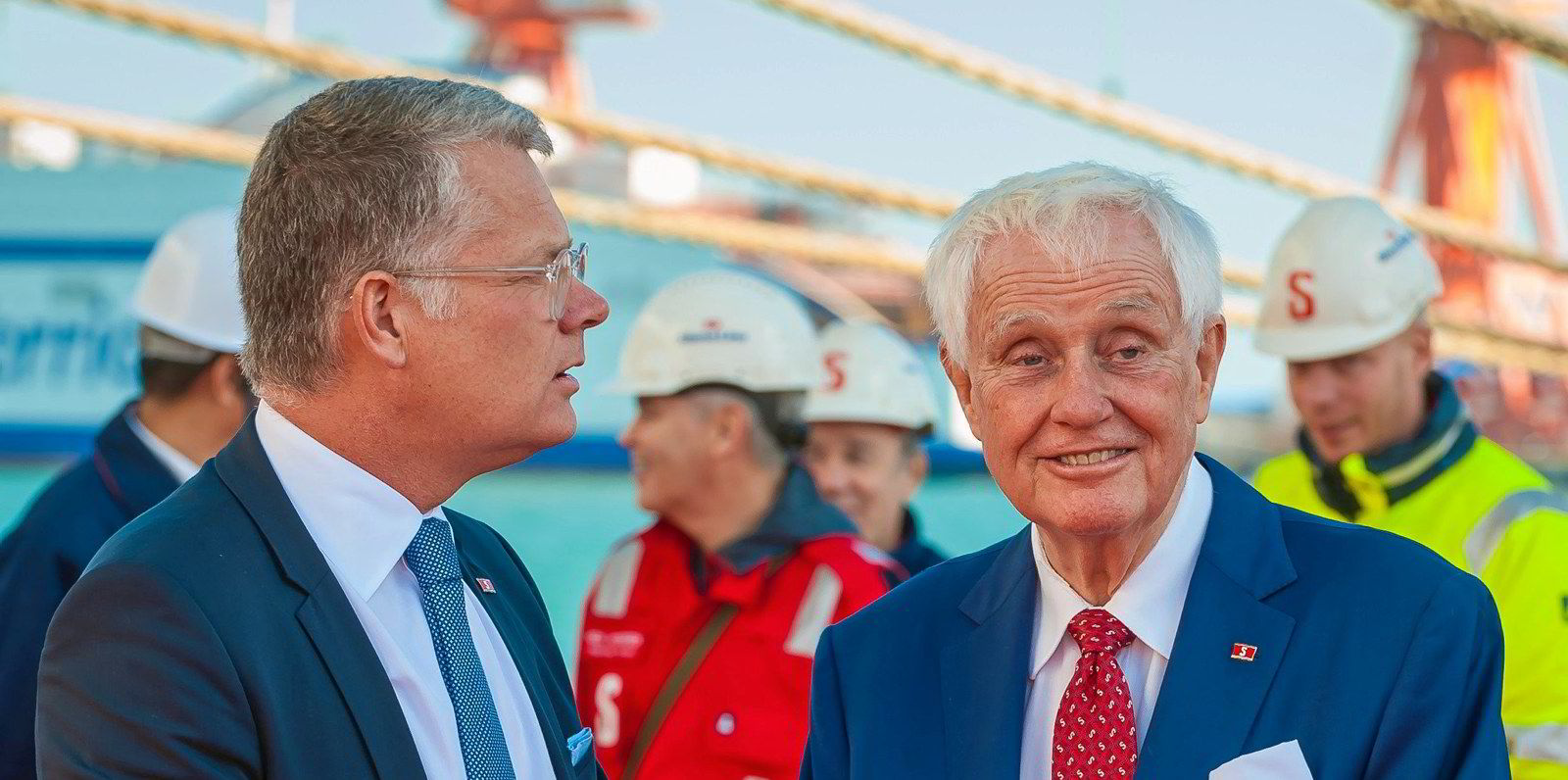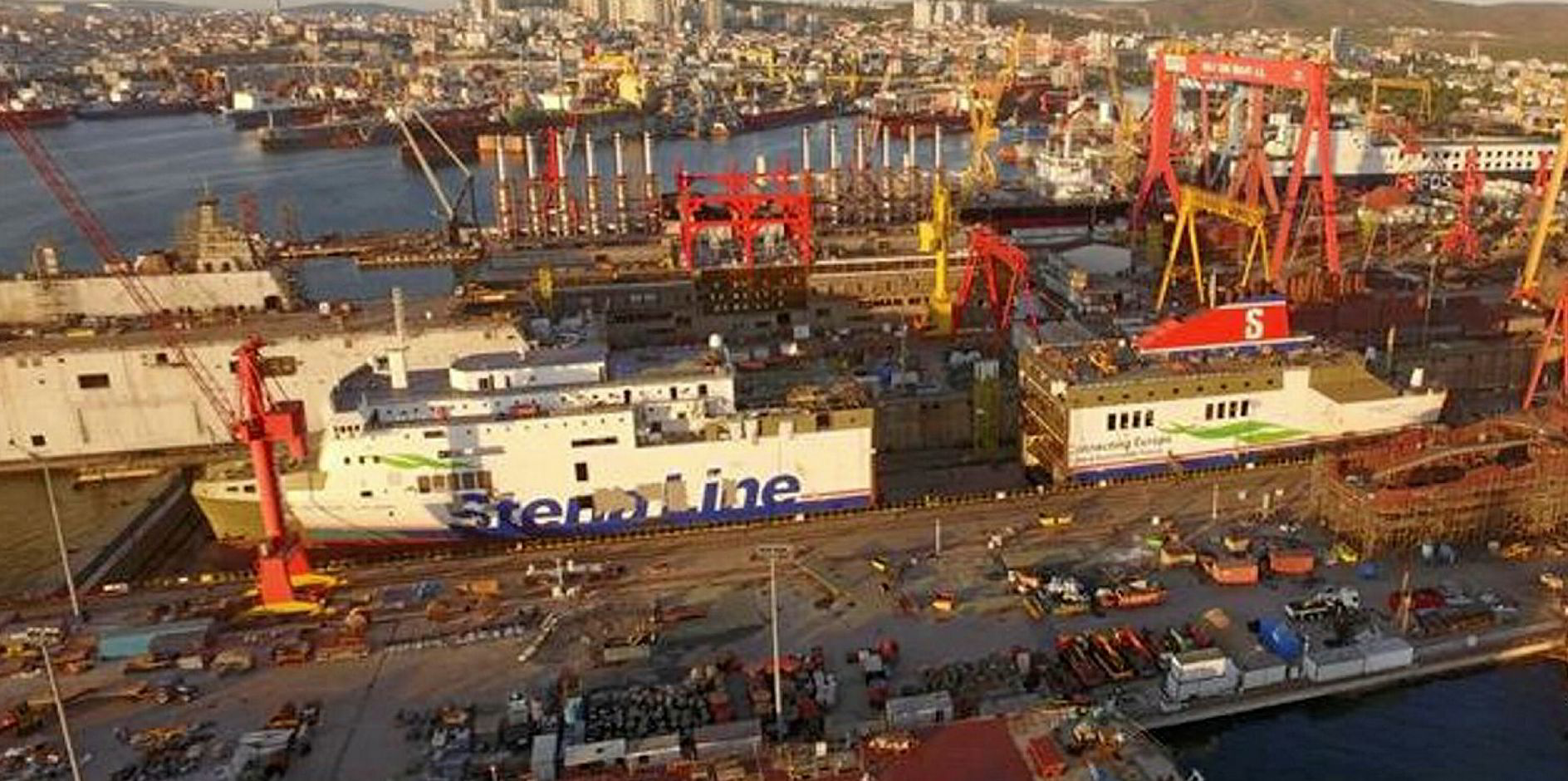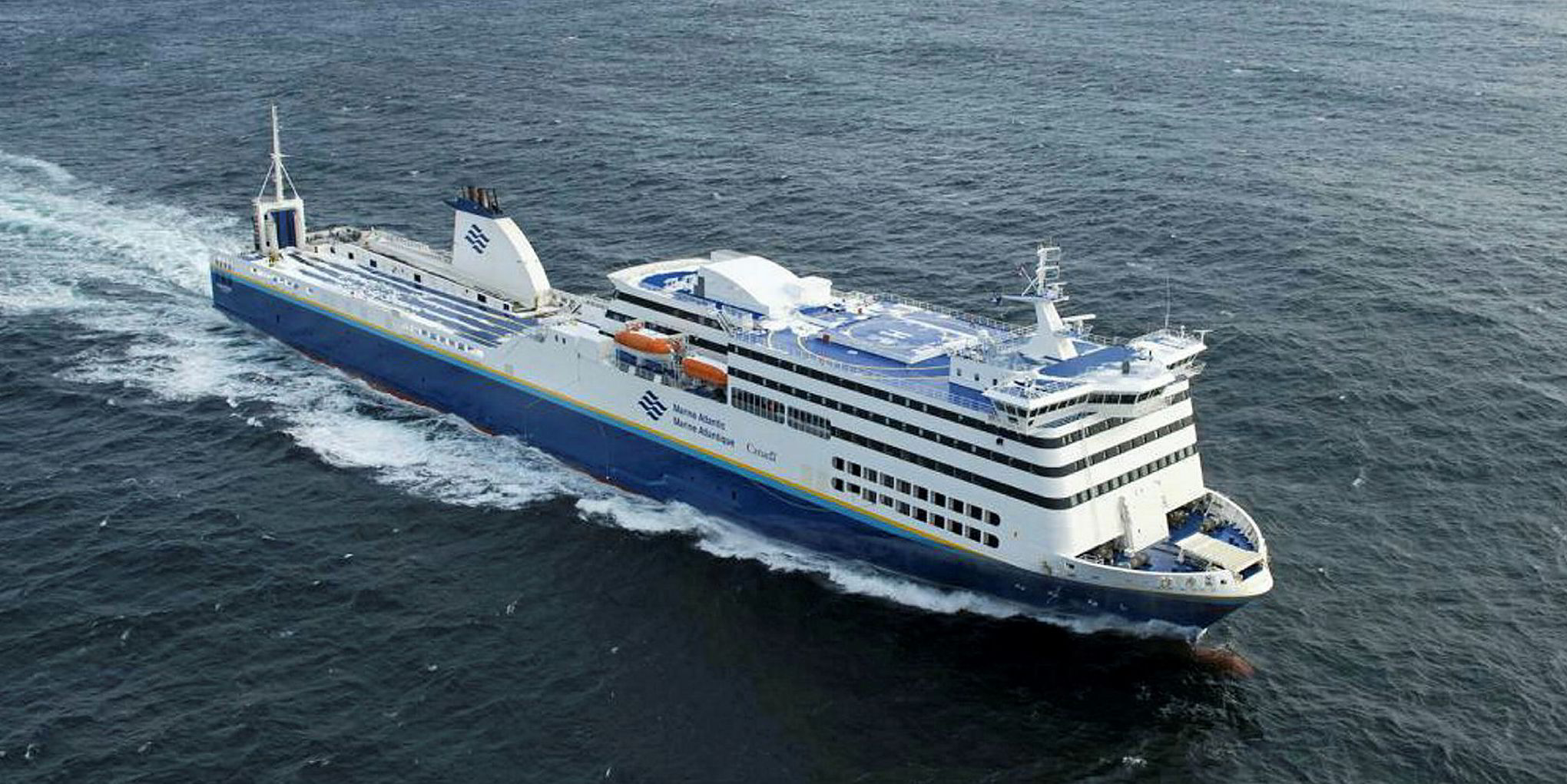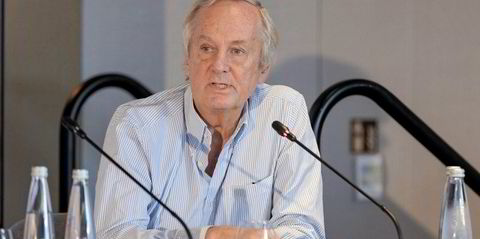Germany's KfW IPEX-Bank has granted Stena Line a $180m loan to finance two of its ferry newbuildings in China.
That will allow the Swedish ferry giant to complete a series of five new “E-Flexer" ropaxes under construction at Jinling Shipyard, before it turns its attention to a more ambitious project for battery-powered ships.
“For us, this is another step on the path to environmentally friendly and sustainable passenger and freight transport by sea,” said Andreas Ufer, a KfW IPEX management board member.
The 40,000-gt ships are being built at China Merchants Group's Jinling Shipyard, with an option to be converted to methanol or LNG propulsion. A possibility for electric hybrid propulsion is also part of the plan.
KfW IPEX is the project and exports finance arm of KfW, a state-owned German bank that supports European businesses at home and abroad. European suppliers, particularly from Germany, cover “a significant proportion” of Stena ferries’ equipment, the bank said.
Chinese interests in the ferries’ construction are reflected in the involvement of Sinosure, the country’s export credit agency, which covers the KfW loan.
The financing secures the last two in a series of five ferries that Stena ordered at Jinling and which are to be delivered by 2022. The company has already taken delivery of the first three ships.
Their denomination as “E-Flexer Ropaxes” is meant to describe the efficiency and flexibility of their design, which is longer than standard ropax vessels and provides more capacity.
The last two ships, which are built in collaboration with sister company Stena Roro, will be even longer and more spacious than the first three, reaching total length of 240 metres.
The new design has just two propulsion engines instead of four, reducing fuel consumption and carbon emissions by about a quarter. At speeds of less than 18 knots, the ships can be run on just a single propulsion engine, KfW-IPEX said.
Stena said last month that it wants its next generation of newbuildings to go even further down the non-carbon path.
The company’s chief executive Niclas Martensson said that Stena plans to start operating two fossil fuel-free, battery-powered vessels between Gothenburg and Frederikshavn in Denmark by 2030.
“Within a year we will present the outline specifications and at the latest by 2025 we plan to order the first vessel,” said Martensson, who is also a member of the Swedish government's electrification commission.
“This will be a huge step towards fossil-free shipping.”






